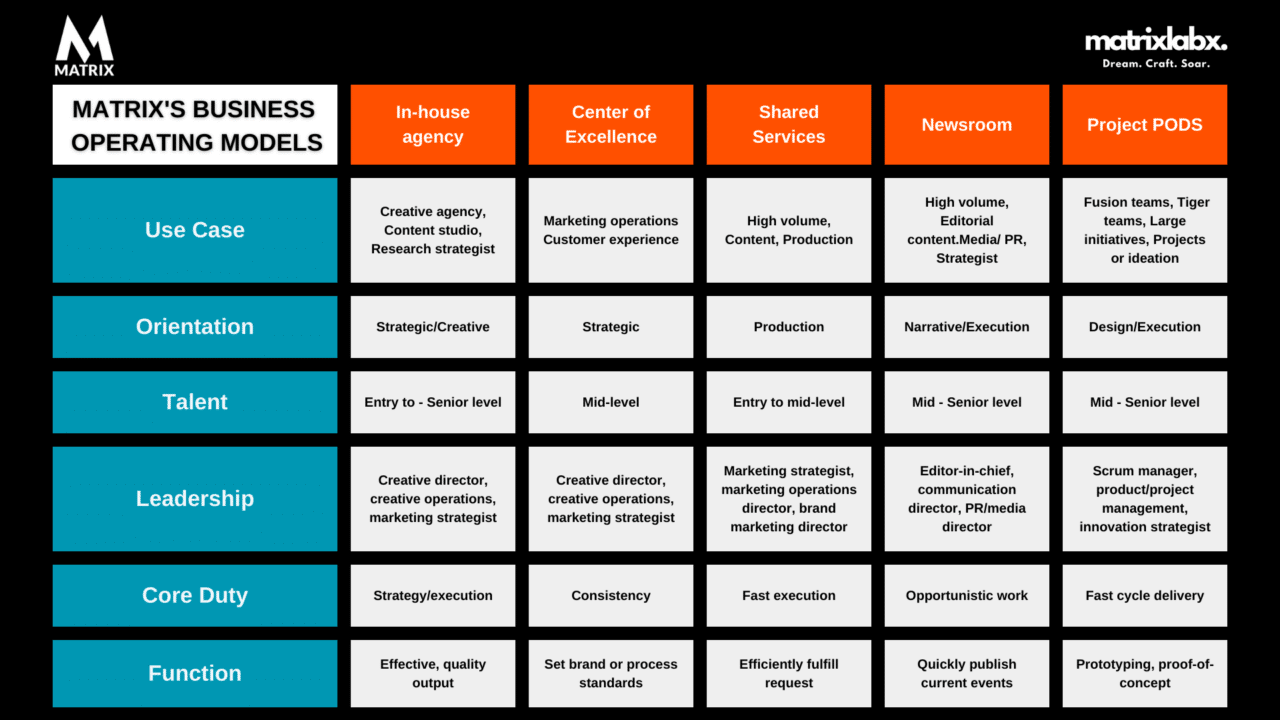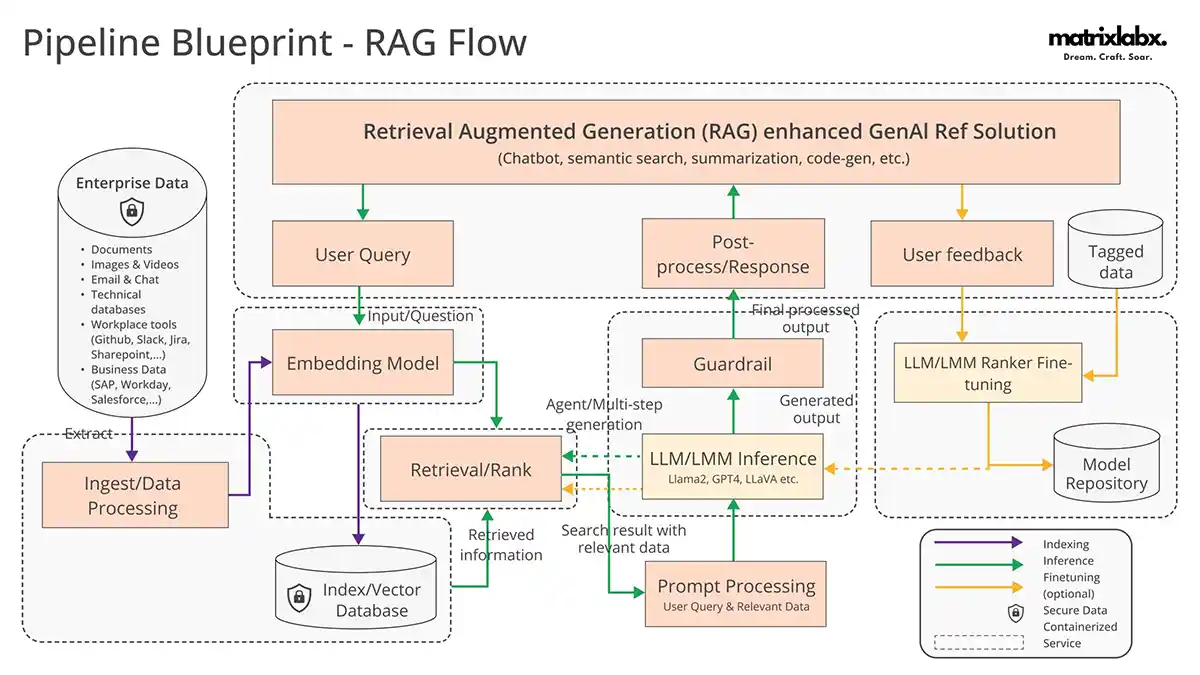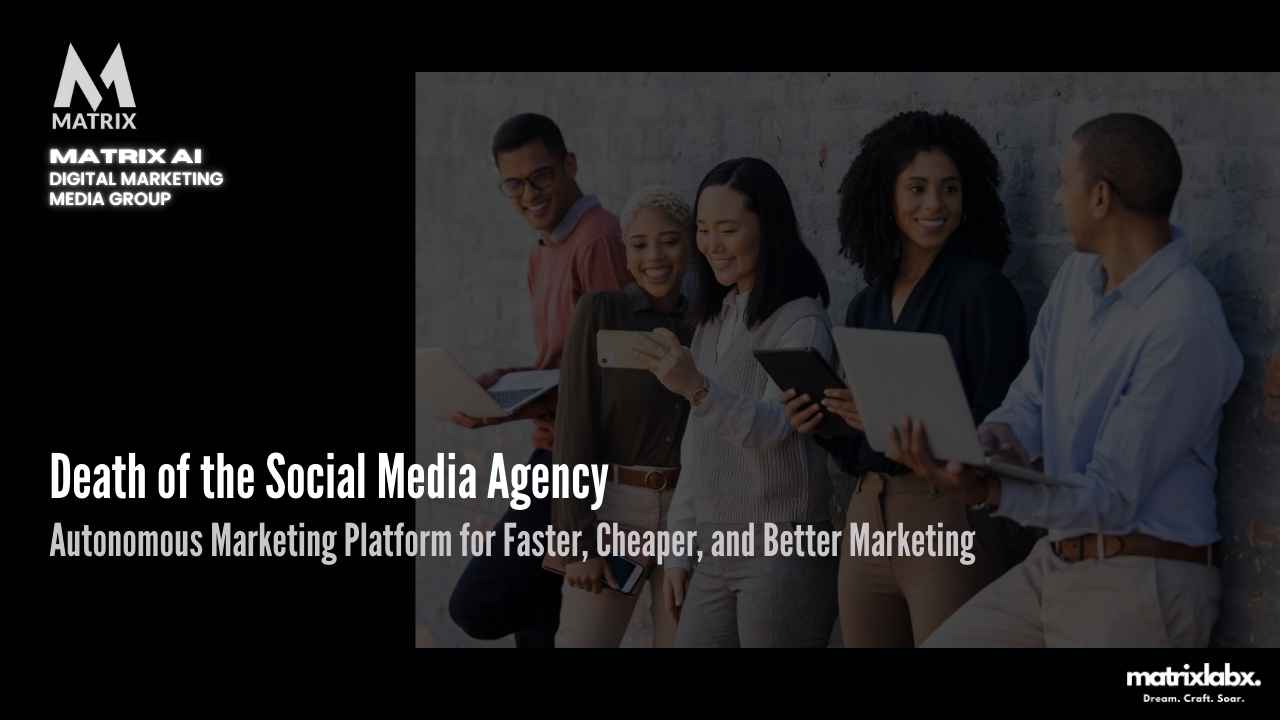The Death of the Social Media Agency: Navigating the New Digital Landscape
Over the past five years, Social Media agencies have been dying. With multi-agent social media marketing systems, we create faster, cheaper, and better content than humanly possible.
We live in a world, a moment in time when AI surpasses human intelligence—an unstoppable cascade of self-improvement begins, and each iteration grows exponentially smarter. This acceleration pushes beyond the limits of your imagination, transforming our world instantly.
We stand on the brink of an unprecedented era when the lines between humans and machines blur into a singularity of unimaginable potential.
For marketers, this isn’t just a glimpse of the future—it’s a new playing field in which the rules of creativity, engagement, and connection are being rewritten.
Are you ready to seize this opportunity and lead your brand into the future?
Jennifer’s Pursuit of OrchestraAI
Jennifer Cross always believed in the power of innovation. As the marketing director for a midsized tech startup, she had one goal: to transform her company’s digital presence and catapult its brand into a global powerhouse.
However, with a small team and limited resources, Jennifer found herself burning out, unable to keep up with the demands of modern marketing. That’s when she first heard about OrchestraAI.
Jennifer came across the AI-driven marketing suite during a late-night scroll through LinkedIn. The promise of an autonomous system that could handle content creation, social media management, analytics, and even ad optimization felt like a lifeline. But OrchestraAI wasn’t cheap. It was cutting-edge, and her company’s modest marketing budget wouldn’t cover even half the subscription cost.
Still, Jennifer was determined. She spent weeks building her case, diving deep into OrchestraAI’s potential. She downloaded white papers, joined webinars, and meticulously calculated the return on investment. Every spare moment was spent crafting a pitch for her CEO and finance team, highlighting how the platform could save them thousands of hours annually.
When presentation day arrived, Jennifer was confident. She walked into the boardroom armed with slides, data, and the unwavering conviction that OrchestraAI was the future of marketing. But her CEO, Martin, frowned.
“Jennifer, this sounds impressive, but we don’t have the budget,” Martin said. “Maybe next quarter.”
Next quarter wasn’t an option for Jennifer. The competition was moving faster, leveraging AI tools that left her team scrambling to keep up. Determined not to give up, she brainstormed alternative ways to fund the subscription.
Jennifer proposed reallocating a portion of their outdated print advertising budget, reasoning that OrchestraAI’s measurable ROI far outweighed the diminishing returns of traditional media. She even suggested cutting back on other tools they were using, pointing out how OrchestraAI could consolidate multiple systems into one.
It took months of persuasion, but Jennifer’s persistence finally paid off. After a successful trial period where OrchestraAI generated a 20% increase in lead conversions, Martin gave the green light for the full subscription.
The transition wasn’t easy. Jennifer spent hours learning the ins and outs of OrchestraAI, customizing the system to fit their unique needs. But once it was up and running, the impact was undeniable. Content creation that used to take days was now completed in minutes. Social media engagement doubled, and Jennifer’s team finally had time to focus on strategy instead of getting bogged down in execution.
Looking back, Jennifer knew the struggle was worth it. Securing OrchestraAI wasn’t just about getting a tool—it was about transforming her company’s marketing and proving that innovation could prevail with enough determination, even amid budget constraints and skepticism.
Now, Jennifer stood in a room full of industry leaders at a marketing summit, sharing her story of resilience. “Sometimes,” she said, “you have to fight for the tools you believe in, even when no one else sees the vision. Because when you get it right, the results speak for themselves.”
Her audience erupted into applause. Jennifer smiled. This was her moment—a testament to the power of belief, persistence, and one AI-driven marketing suite that changed everything.
- Our recent market research shows that 85% of marketing agencies need more in-house expertise to effectively manage and deploy multi-AI agent systems.
- 70% of agencies need help integrating AI solutions into their tech stack, citing a lack of interoperability as a major barrier.
OrchestraAI Marketing Platform – WATCH
OrchestraAI utilizes a compound AI agent architecture as an AI Agentic Platform. This architecture seamlessly integrates multiple specialized AI agents into a cohesive system, enabling it to tackle complex, multifaceted marketing tasks.
Introduction: The Shift in Digital Marketing
The action is where your customers search, speak, and engage. Social channels. It helps with social proof.
Did you know that 80% of CMOs believe traditional social media agencies will become obsolete within the next five years?
As the digital landscape evolves rapidly, the conventional role of social media agencies is being redefined, prompting marketing leaders to rethink their strategies and partnerships.
But what does this mean for your brand’s digital future?
The Changing Role of Social Media Agencies

In the past, social media agencies were indispensable, managing everything from content creation to analytics. However, the digital ecosystem has changed dramatically. We want user-generated content (UGC) centered around our brand.
Today, brands increasingly adopt in-house teams to handle social media efforts, leveraging advanced AI-driven tools that offer real-time insights and automation. The need for more control, agility, and alignment with broader business objectives drives this shift.
CMOs face the challenge of staying ahead in this competitive landscape. The key concern is whether to continue investing in traditional agencies or pivot to new models that offer greater flexibility and innovation.
By understanding these changes, you can make informed decisions that ensure your brand’s success.
70% of agencies need help integrating AI solutions.
70% of agencies need help integrating AI solutions into their tech stack, citing a lack of interoperability as a major barrier. 85% of marketing agencies need more in-house expertise to manage and deploy multi-AI agent systems effectively.
Evidence-Based Recommendations for CMOs
To navigate this transition, CMOs should focus on building a hybrid model that combines the strengths of both in-house capabilities and external expertise.
Embrace AI and data analytics to gain deeper insights into consumer behavior and enhance decision-making. Invest in training your internal team to stay abreast of the latest digital trends and technologies.
Moreover, consider collaborating with specialized agencies that offer niche expertise and cutting-edge solutions. This approach allows for a more tailored strategy that aligns with your brand’s unique goals and challenges.
By taking these steps, you can future-proof your marketing efforts and build a resilient digital presence that thrives in the ever-changing social media landscape.
In conclusion, while the traditional social media agency may be facing a decline, the opportunity for innovation and growth is greater than ever.
By adapting to these changes, CMOs can lead their organizations to new heights in the digital world.
The Death of the Social Media Agency: A New Era for Digital Marketing

Understanding the Shift
The “Death of the Social Media Agency” concept marks a pivotal transformation in the ever-evolving digital marketing landscape.
This shift refers to the decline of traditional social media agencies that solely focus on managing platforms and executing campaigns. Instead, businesses seek integrated, strategic approaches combining data analytics, content creation, and customer experience under a broader marketing strategy.
Why This Evolution Matters
The traditional social media agency model needs to catch up due to the demand for a comprehensive marketing approach beyond posting and engagement metrics.
Modern CMOs confront an increasingly data-driven and results-oriented digital ecosystem. To effectively engage and convert customers, brands require more in-depth insights, personalized interactions, and seamless integration across digital channels.
This evolution signifies a need for agencies to adapt by expanding their skill sets, adopting new technologies, and focusing on aligning with overarching business goals.
The Skill Gap: Why 85% of Marketers Are Not Ready
The Skill Gap: Why 85% of Marketers Are Not Ready highlights the urgent need for upskilling in a rapidly evolving digital landscape. Advanced technologies like AI, data analytics, and automation are outpacing traditional marketing expertise, leaving most professionals unprepared to adapt and compete effectively.
Where the Revolutionary Changes Are Taking Place
This transformation is widespread, affecting agencies globally as businesses pivot toward in-house capabilities and partnerships with full-service agencies that offer a wider array of marketing solutions.
As CMOs explore these changes, they must identify partners that understand social media dynamics and offer expertise in data analytics, artificial intelligence, influencer marketing, and omnichannel strategies.
The death of the traditional social media agency is not an end but a metamorphosis driving innovation and a more holistic vision for digital marketing success.
Facing the AI Experience Gap: A CMO’s Biggest Challenge
The Deepening Void in AI Insights
In an era where data drives decisions, many Chief Marketing Officers (CMOs) struggle with a significant gap: a need for comprehensive AI experience.
This isn’t just a minor inconvenience—it’s a pressing issue that could redefine market positions and brand equity.
Without the ability to harness AI’s full potential, CMOs risk falling behind competitors, leveraging advanced analytics to understand customer behavior, predict trends, and tailor personalized marketing campaigns.
Lost Opportunities and Stunted Growth
Imagine the competitive edge one could gain by predicting consumer behavior with near-perfect accuracy. Now, consider the ramifications of not having access to these insights.
A robust AI strategy is needed to help CMOs grappling with underperforming campaigns, missed customer connections, and inefficient resource allocations.
The longer this gap persists, the wider the disparity grows, magnifying the missed opportunities and stunting potential growth. It’s not just about keeping pace; it’s about avoiding obsolescence in a market rapidly transformed by AI.
The Turnaround: Our AI Marketing Solutions
Here’s where our AI marketing solutions step in as a game changer.
Our AI-driven platforms are designed to seamlessly integrate with existing systems, empowering CMOs with actionable insights and the ability to personalize marketing efforts at scale.
From enhancing customer engagement through predictive analytics to optimizing campaign performance with real-time data, our solutions provide the depth and breadth of AI experience that CMOs desperately need.
Reclaim Your Competitive Edge
Don’t let your competitors steal the spotlight.
Harness the power of our cutting-edge AI solutions to bridge your experience gap and reignite your marketing strategy. Dive into a future where data-driven decisions and marketing efforts resonate more deeply with your audience.
Are you curious to see the transformation AI can bring? Connect with us today and take charge of the new marketing landscape.
The Shifting Landscape: Embrace the Change

George Schidge, CTO at MatrixLabX
“I often compare the social media landscape to a once-bulging river that’s changed course. As someone in this field for over two decades, witnessing the ‘Death of the Social Media Agency’ seems less daunting and more like a chance for reinvention.
Traditional CMOs must evolve into digital innovators. In this flux, unparalleled opportunity exists for those willing to adapt swiftly. Companies are beginning to recognize that social media is no longer just an add-on but an integrated function of every department. This shift in perspective is crucial and, ultimately, refreshing.”
John Matthews, Former CMO of a Fortune 500 Company
“The concept of a dedicated social media agency has been on life support for some time. We’re witnessing a natural progression of how businesses should evolve.
Today’s CMO is a marketer and a data-driven strategist who understands multi-channel customer engagement. As core marketing skills become in-house competencies, the lines between CMO, CIO, and CTO roles are blurring.
This confluence points toward a future where strategic decisions are made holistically, driven by insights gathered across platforms rather than traditional means.”
A New Era of Collaboration
Linda Moreno, Social Media Innovator
“The death of the social media agency isn’t a termination but a transformation. The demand for agility and authenticity has skyrocketed.
Brands are moving away from outsourcing because they need immediate, genuine interactions with their audiences. In-house teams crafted with diverse skills are set to become the cornerstone of modern marketing.
This dynamic landscape fosters a culture of collaboration and innovation, where departments work synergistically to enhance brand presence organically. For those invested in this transition, it’s an exciting time to be at the forefront of digital marketing evolution.”
These testimonials aim to spark curiosity by highlighting the dynamic changes in social media and marketing roles, prompting readers to consider how these shifts might affect their strategies.
How Marketers Are Spending Their Money
In 2025, Chief Marketing Officers (CMOs) are strategically allocating their budgets to navigate a rapidly evolving landscape characterized by technological advancements, shifting consumer behaviors, and economic uncertainties.
Best Practices in the Death of the Social Media Agency
The “Death of the Social Media Agency” doesn’t spell the end of digital engagement strategies; rather, it marks an evolution.
Brands are transitioning from relying heavily on external agencies to fostering in-house teams and harnessing niche influencers. This shift allows for authentic storytelling and agile responses to rapidly changing social landscapes.
Case Study: Veil & Thread
Veil & Thread, an eco-conscious fashion line, exemplifies this shift by leveraging a dedicated in-house team. They’ve cultivated a relatable brand voice by tapping their employees’ passion and expertise.
They eschew traditional automated scheduling, focusing instead on real-time engagement and interactive storytelling. The result? Organic growth and a loyal community eager to share genuine experiences.
Engaging Narratives with BrewLeaf
Another innovative example is BrewLeaf, a boutique tea brand that effectively tailors its messaging to niche audiences by collaborating with micro-influencers in wellness communities.
This approach has increased visibility and fostered deeper connections as influencers provide personalized narratives that resonate naturally with their followers.
Dynamic Content Creation: PanTerra Décor
PanTerra Décor, a home goods startup, has pivoted to utilizing dynamic content through user-generated narratives.
They’ve generated fresh, engaging content without conventional agency overheads by encouraging customers to share personal design stories tagged with #MyPanTerraPalette.
This grassroots strategy energizes their branding organically and highlights the creative use of their products in diverse settings.
As these brands demonstrate, the future of social media marketing lies in agility, authenticity, and community-driven content.
While agencies won’t disappear entirely, the landscape demands collaboration, a keen understanding of brand storytelling, and standing out in a crowded digital world.
Discovering Matrix: A New Era for Digital Interaction
In an era where social media agencies rapidly lose their traditional influence and relevance, Matrix emerges as a groundbreaking alternative for collaborating and exchanging digital communication.
Curious about how Matrix can revolutionize digital interaction and engagement?
Unveiling the Matrix OrchestraAI
MatrixLabX’s Symphony AI suite offers a comprehensive approach to social media marketing through its specialized AI agents. These agents automate and optimize various aspects of social media management, enhancing efficiency and effectiveness.
Key functionalities include:
- Content Creation and Scheduling: The AI Social Media Content Plan GPT Agent develops data-driven social media strategies, ensuring consistent and engaging content across platforms. It automates post-creation and scheduling, allowing marketing teams to focus on strategic initiatives.
- Performance Analysis and Optimization: The AI Ad Performance Analysis GPT Agent monitors the effectiveness of social media advertising campaigns, providing insights and recommendations for optimization. This enables continuous improvement of social media strategies based on real-time data.
- Customer Engagement: AI agents facilitate timely responses to customer interactions on social media platforms, enhancing engagement and building stronger relationships with the audience.
MatrixLabX’s Symphony AI suite streamlines social media marketing efforts by integrating these AI agents, delivering targeted content, and maximizing audience engagement.
Building Tomorrow: Exploring Innovative Communities
Matrix’s flexibility and user-centric approach provide fertile ground for innovation. For those interested in leveraging this protocol, it involves connecting through various clients, like Element, to experience seamless communication.
Setting up a Matrix server is relatively straightforward. It allows businesses and individuals to tailor their communication environment to suit their needs.
Organizations can create direct communication networks to engage audiences interactively, enhancing collaboration and engagement beyond the confines of traditional social media platforms.
Embrace the Future: Transforming Social Dynamics
The death of the traditional social media agency signifies more than just a platform shift: it’s an opportunity to explore novel interaction methods.
By adopting Matrix, individuals and organizations can forge a path toward a future that prioritizes user empowerment, privacy, and innovation.
This transition signifies a more democratic and secure way of managing digital communications. As the landscape of digital interaction transforms, Matrix stands out as a beacon guiding users toward a more open and interconnected world.
As curiosity drives the exploration of new communication avenues, embracing Matrix can lead to a deeper, more meaningful digital engagement experience.
Death of the Social Media Agency: A New Era
In “Death of the Social Media Agency,” the author explores the shifting landscape of digital marketing and questions the relevance of traditional social media agencies.
The digital revolution has rendered many conventional strategies obsolete as brands demand more accountability, tangible results, and real-time interaction.
Social media is now integrated into broader marketing strategies rather than a standalone effort. This article captures why many agencies struggle to adapt and survive in this evolving ecosystem.
AI Branch Models for B2B Technology by MatrixLabX
AI-first paradigm rapidly reshapes the industry, replacing outdated structures with agile, efficient, and scalable approaches.
The Rise of In-House Teams
Companies increasingly opt to build in-house teams that manage their digital presence, allowing for greater flexibility, coordination, and immediacy.
In-house resources can adapt quickly, drawing insights directly from the company’s vision and consumer data.
This shift challenges traditional social media agencies, often lagging due to rigid structures and external client management processes.
In essence, brands prefer teams that can operate immediately and align with their core values—a factor increasingly difficult to replicate effectively with outside agencies.
You want a higher engagement rate and follower growth with boosted posts.
New Expectations and Technologies
Social media platforms continuously introduce new tools, algorithms, and trends, reshaping brands’ expectations for engagement and return on investment.
Modern businesses require partners who leverage these technologies seamlessly, providing instant solutions and strategic foresight.
From augmented reality filters to advanced analytics, the demand for cutting-edge proficiency has outpaced many traditional agency models.
These dynamics urge agencies to evolve or face obsolescence, prompting a seismic shift in how brands perceive and utilize their digital partners.
In conclusion, the article posits a future where social media agencies’ deadweight transforms into a vibrant opportunity for those who innovate and adapt.
As businesses continue to embrace integrated and fluid digital marketing strategies, the narrative of traditional agencies must pivot to meet the agile needs of a digitally native world.
Conclusion
The article posits a future where social media agencies’ deadweight transforms into a vibrant opportunity for those who innovate and adapt.
As businesses continue to embrace integrated and fluid digital marketing strategies, the narrative of traditional agencies must pivot to meet the agile needs of a digitally native world.
AI agentic systems, such as MatrixLabX OrchestraAI, offer a transformative approach to social media marketing. These AI agents enhance efficiency, effectiveness, and engagement by automating and optimizing various aspects of social media management.
The OrchestraAI suite provides data-driven strategies, performance analysis, and customer engagement capabilities, enabling businesses to navigate the evolving digital landscape successfully.
Furthermore, MatrixLabX’s user-centric approach and flexibility allow for innovative communication methods and communities. Individuals and organizations can create direct communication networks, fostering collaboration and engagement beyond traditional social media platforms.
As the concept of social media agencies undergoes a significant transformation, Matrix emerges as a beacon guiding users toward a more open, interconnected, and democratic world of digital communication.
Embracing Matrix and AI agentic systems like OrchestraAI empowers users to shape the future of digital interaction, prioritizing user empowerment, privacy, and innovation.




